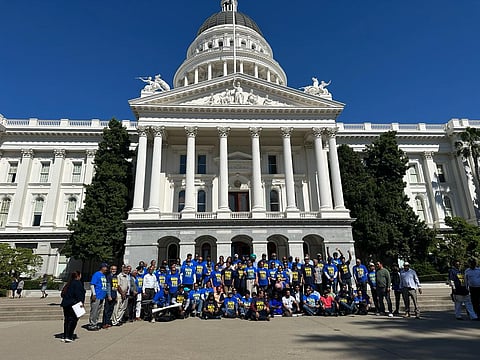
California, one of the richest state in the world, inches closer to fighting caste-based discrimination in the United States as the Assembly Judiciary Committee advances the SB-403 bill to the Assembly for the final rounds.
The bill, aims to end caste-based discrimination in the state by recognizing caste as a separate non-discrimination category in the state's civil rights, employment, and housing laws, alongside race, gender, and sexual orientation.
The bill was proposed by State Senator Aisha Wahab, who belongs to the Democratic Party and has managed to pass through several crucial stages in recent weeks. The bill passed its first hurdle on April 25 when the Senate Judiciary Committee unanimously passed the bill by 8-0, pushing it for further consideration to the next committee.
On May 12, the bill passed its next major hurdle with the California State Senate voting 34-1 in favor of adding caste to the list of protected categories.
The next step the bill will have to pass through is the State Senate, where it will be subjected to voting. The Californian Senate has a majority of the Democratic Party, to which Senator Aisha Wahab belongs, and therefore is likely to sail through.
Speaking to The Mooknayak, Vikas Tatad, a student at Columbia University who played an instrumental role in getting caste added as a protected category in the university, said, "It is a moment of joy for the Ambedkarite community and everyone fighting against injustice. I thank every organization, be it the Ambedkar International Centre, Ambedkar International Mission, Ambedkarite Association of North America, and Dalit Solidarity Forum. As a member of the Senate in Columbia University, I will ensure that the bill is discussed in the university, and we will also organize programs to sensitize the students in Columbia University about caste and how it can be combated in the United States."
Thenmozi Sundarrajan, Executive Director of Equality Labs, one of the largest Dalit civil rights organizations working to empower caste-oppressed people in the United States , who played a crucial role in introducing the bill, reacted by tweeting, "We have gotten this bill through the judiciary and now look forward to winning it across the assembly! #jaibhim to all, especially the Sri Guru Ravidassia Leaders across the state who are the spine of this movement! #jaibhim and #jaigurudev!"
Although the bill aiming to end caste-based discrimination was cleared for the State Senate, the lack of clarity surrounding the passed bill fueled speculations that the bill might have been amended to remove 'caste' as a standalone non-discriminatory category. The NRI community in California was abuzz with speculations that 'caste' may have been relegated to one of the several terms clarifying the existing category of 'ancestry'
Speaking to The Mooknayak, Ram Kumar, the president of Ambedkar International Centre, was cautious in celebration and said, "Today's voting on SB 403 in the Assembly Judiciary Committee was a step forward for the recognition of caste discrimination as a serious issue. The Assembly Judiciary Committee has passed it unanimously. This will go to the Assembly for the voting next. We haven't seen the amended version of the bill yet and can't comment on the implication. Our stand is very clear. Any ambiguity in the law to identify caste discrimination should not be allowed. Ambedkar International Center and our coalition AACD will continue efforts and keep raising their voice until there is a law that identifies caste as a clearly defined separate category." Ram believe that in a day or two, the contents of the bill will be made public.
Meanwhile, the opponents of the bill argue that the bill is unconstitutional and discriminatory towards people of South Asian origin. On the other hand, the proponents of the bill dismiss the allegations as an attempt to retain the caste system in the United States.
Read more:
You can also join our WhatsApp group to get premium and selected news of The Mooknayak on WhatsApp. Click here to join the WhatsApp group.